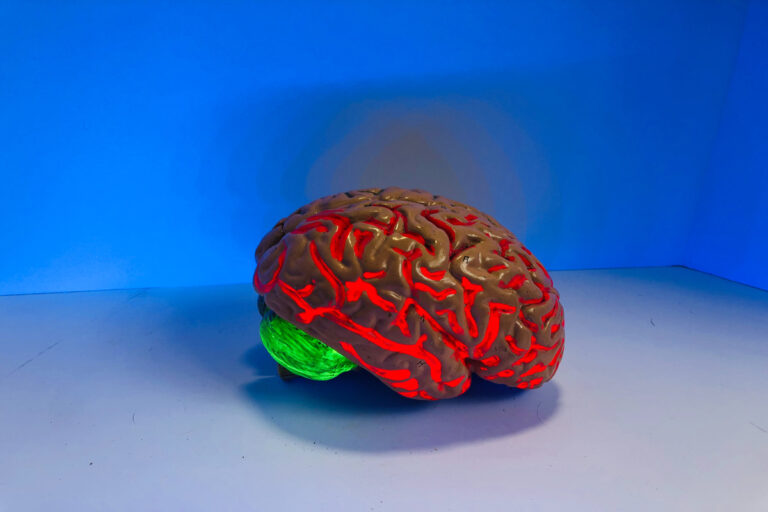iPhones could soon monitor your mental health and diagnose depression

When you think about how intertwined the smartphone has become with our daily lives, it’s easy to forget that just over a decade or so, the technology didn’t even exist. Now, my iPhone is basically an extension of my body; it’s my social life, my wallet and now my COVID-19 pass. Smartphones are already being used for medical-related purposes: screening for conditions from autism to pancreatic cancer, managing ultrasound wands and even cardiac monitors… The list goes on. And believe it or not, but soon enough, that sleek, thin device in your pocket, powered by a small silicone chip, could even be used to monitor your own state of mind.
iPhones could soon detect mental health conditions and cognitive decline
A recent report by The Wall Street Journal has broken the news that Apple is allegedly working on ways to help detect and diagnose conditions such as depression, anxiety and cognitive decline using iPhones. Researchers working on the project hope that collecting and analysing data, such as mobility and sleeping patterns, will help stop certain behaviours associated with mental health conditions.
It’s been reported that other measures could also be used to collect data including facial expression analysis, as well as heart and respiration rates. Although this may seem invasive on the surface, Apple has reassured users that no data will be sent to their servers—with all processing taking place on a localised level, strictly on the device only. My advice? Take this with a pinch of salt.
While the idea of using emerging technologies to benefit mental well-being is not a new phenomenon, it’s actually been in the academic pipeline for some time now. The University of California is currently studying stress, anxiety and depression using data from Apple Watches and iPhones. Currently, 3,000 volunteers are being used in the study which is scheduled to start this year after a successful pilot phase began in 2020, recording data from 150 volunteers. The research will be used to guide Apple in its quest to build technologies that will supposedly make us happier.
Along with detecting mental health conditions, Apple is also honing its sites to better combat cognitive decline through assisted technology. One of the most influential studies in this challenge is being led by the pharmaceutical firm Biogen. The multinational’s research will analyse how monitoring data, gathered by 20,000 iPhones and Apple Watches, could help identify links between physical activity levels, smartphone use and cognitive function. The goal: to use those particular data points to track brain function over time, hoping to catch mild signs of cognitive impairment—which could advance to more sinister disorders, like Alzheimer’s disease—as early as possible.
The study will follow an early-stage investigation conducted by Apple with Eli Lilly (another American pharmaceutical company) to uncover connections between tech use and cognitive function. In 2019, researchers found that individuals already diagnosed with mild cognitive impairment or dementia typed slower, sent fewer text messages and used devices more erratically than those with healthy cognitive function.
The good, the bad and the ugly
So the scientific, objective data is somewhat unanimous—at least in suggesting that emerging technologies could be beneficial in helping us detect both mental health conditions and forms of cognitive impairments. But the question of whether we should is far more complex. At first glance, it seems like a no-brainer—it could help detect (and protect) people from often debilitating conditions and ultimately benefit the lives of millions. Secondly, in 2021, with the vast majority of the population owning a smartphone, it would be an easy and convenient way to monitor our health. Heck, we use it for tracking our steps, our sleep schedule, or favourite take-away pizza—why not give away another piece of that precious data?
But that’s where it gets tricky… To what point do we trust leading tech companies with arguably the most sensitive, private and personal data we possess, our own mental state? Moreover, although there is scientific backing behind this project suggesting it could be implemented with little to no misdiagnosis, there is always the chance a device could make a mistake.
The repercussions of being misdiagnosed with a mental health condition purely from a data fault could be incredibly detrimental. Taking the placebo effect into the equation, it could lead to someone believing they do in fact have the condition, so much so they actually develop the condition. And don’t even get me started on the issues of data breaches. Although, admittedly, the risk of this is minimal due to the fact that Apple has so far promised us all data will remain solely on the localised devices.
It all seems a little ironic, especially given how smartphone addiction and social media has been shown to have adverse effects on our mental wellbeing. Ultimately, however, I do believe it was only a matter of time before big tech companies latched onto the emerging psycho-technology market. And putting the ethical issue of privacy aside, it does seem like Apple’s new venture could help countless people across the planet. The pandemic has, unfortunately, put mental health at the forefront of our minds and technology like this may be one of the key solutions to the problem. Only time will tell whether Apple has finally put the well-being of people as its number one priority. For now though, I wouldn’t put my money (or data) on it.





